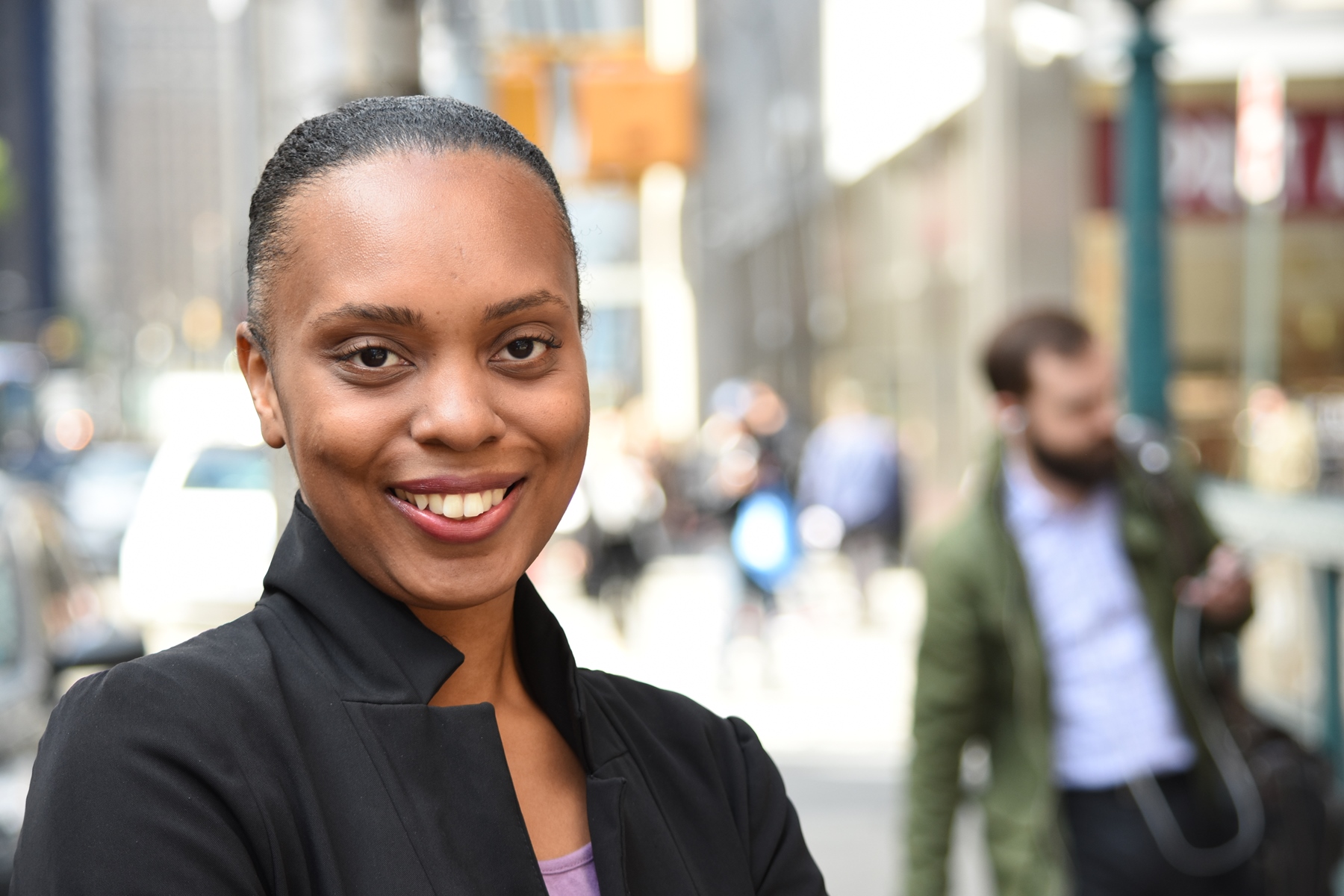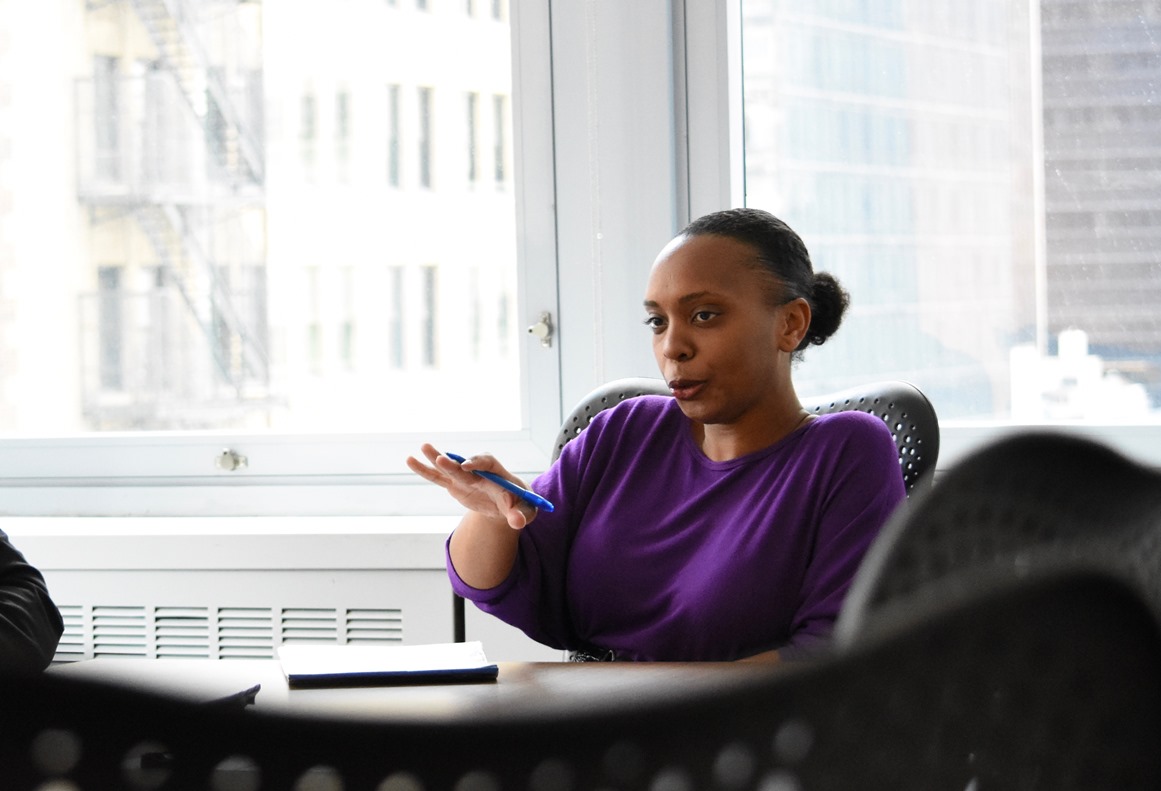
 Civilian Complaint Review Board311
Civilian Complaint Review Board311 Search all NYC.gov websites
Search all NYC.gov websites
Q&A with Investigator Monique West

Investigator Monique West grew up knowing she wanted to work in the criminal justice field.
1) Tell us a little bit about yourself. What were you doing before you became an investigator?
I went to St. John’s University and majored in Criminal Justice. While in school, I worked for an afterschool center in Manhattan. After I graduated, I held a couple of different jobs from the financial services to Macy’s before I started working at the CCRB.2) When you first applied to be an investigator, what did you think the job was about?
I thought I was going to be responsible for finding all of the “bad” officers and making sure they were properly disciplined. It isn’t that at all. Investigators find the truth about what happened during a particular incident.
3) What made you want to be an investigator?
Investigations and the criminal justice system have always been of interest to me. I loved watching detective shows like “Law and Order” and “Blue Bloods,” and growing up, I played Clue a lot. I ended up studying Criminal Justice in college—I knew I’d do similar work.
4) Knowing what you know now about this work, what is the most important thing applicants should know to be a successful investigator?
I have been an investigator for five years now. It’s important for applicants to understand that the CCRB is an independent agency. Our job isn’t to take sides but rather to find out the truth about what happened in an incident. It is extremely important for an investigator to approach this work with an open frame of mind and let the facts of a case determine how you view an incident.

5) What is the hardest thing about being an investigator?
Not jumping to conclusions or forming premature opinions without all the evidence. As an investigator, before coming to any conclusions, it is important that you have interviewed every civilian and officer possible, and have reviewed all the evidence, which may include documentation, photographs and video footage. It can be easy to begin forming conclusions after having only looked at part of the evidence. But as impartial investigators, we need all of the evidence and statements to come to a fair conclusion.
6) What part of the investigative process do you get most excited about?
Receiving and reviewing video footage and other evidence. That’s when the pieces of the puzzle begin to come together. Generally, no one tells me where to go or what to do next. That’s all up to me. Because of that, I’ve gotten to see so many different parts of the city. I always feel accomplished at the end of an investigation knowing that my ability to obtain the proper evidence and ask the right questions is what allowed me to come to a fair disposition and close a case.
7) What inspires you to come back to work every day?
I’m motivated knowing that I have cases that have not been closed, questions that have not been answered, and allegations that have no dispositions. Right now, I am investigating ten different cases. Each one is its own different story and I hate not knowing how a story ends.
8) What is the most important skill you’ve had to develop as an investigator?
Definitely communication skills. Communication is how we get most of the information that we need during the course of an investigation. Knowing how to communicate with different people and being comfortable doing it is extremely important.


